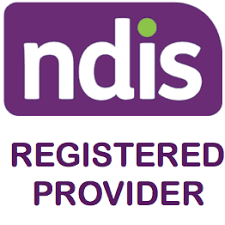Apps
DEFINITION
A tic is a condition in which a part of the body moves repeatedly, quickly, suddenly and uncontrollably. Tics can also be defined as recurrent, involuntary and non-rhythmic motor movements or vocalizations. Tic disorders are neurodevelopmental conditions that cause irregular, unwanted, uncontrollable, and repetitive muscle movements, often on the face or eye, but sometimes can occur in other parts of the body. There is evidence that most children who get tics may outgrow them by the end of puberty (APA, 2013; Ramanujam & Himle, 2016).
CAUSES
Research has been done but no firm evidence has been given on the primary causes of tics or tic disorders. It can be noted that sometimes stress and sleep deprivation seem to play a role in both the occurrence and severity of motor tics. In some cases, it is thought that tics might be related to an undetectable chemical imbalance in the brain. Sometimes it appears to be inherited (that is passed down from a family member) (APA, 2013; Ramanujam & Himle, 2016)
.
TYPES
There are three main types of tic disorders. These are:
- Provisional or Transient Tic Disorder – this disorder is most prevalent in youth or young people. It is exhibited by the presence of one or more tics for at least one month, but less than one year. In this disorder, although vocal tics may occur, motor tics are the most prevalent. Many children with the disorder experience several occurrences of the transient tics, which may differ in how they manifest over time.
- Chronic Motor or Vocal Tic Disorder– while transient tics go away in less than a year, chronic tics can last longer, usually over a year. Chronic tic disorders exhibit themselves by the presence of one or more recurrent and long-lasting tics. Signs of this disorder usually begin before the age of 18 years.
- Tourette's Syndrome or Persistent Tics – this is a type of tic disorder that appears to be a chronic tic. This syndrome is the most severe tic disorder and is usually characterized by the presence of both motor tics and vocal tics.
(APA, 2013; Ramanujam & Himle, 2016)
SYMPTOMS
Some of the noticeable symptoms of tic disorders are:
- Facial grimacing
- Excessive blinking
- Twitching
- Arm, neck or head jerking
- Shoulder shrugging
- Sudden, uncontrollable movements of the legs, arms, or body
(APA, 2013; Ramanujam & Himle, 2016)
Behaviour Help
If you are supporting an individual with this diagnosis, please refer to our services and resources. They aim to help children, adolescents and adults achieve better communication, social, emotional, behavioural and learning outcomes. So whether you are wanting guidance on parenting, teaching, supporting or providing therapy, Behaviour Help is at hand.
Note: This is not an exhaustive list of all the possible causes, symptoms and types but some general information that can be further explored. Based on what you have read if you have any concerns about an individual, please raise them with the individual/s. The caregiver can then raise these concerns with their local doctor who can provide a referral to the relevant professional (e.g. paediatrician, psychologist, psychiatrist, allied health professional and learning specialists) for diagnosis and treatment if appropriate.
Get Started with Behaviour Help App
Assess-manage-prevent behaviours of concern efficiently and effectively with the Behaviour Help App.



